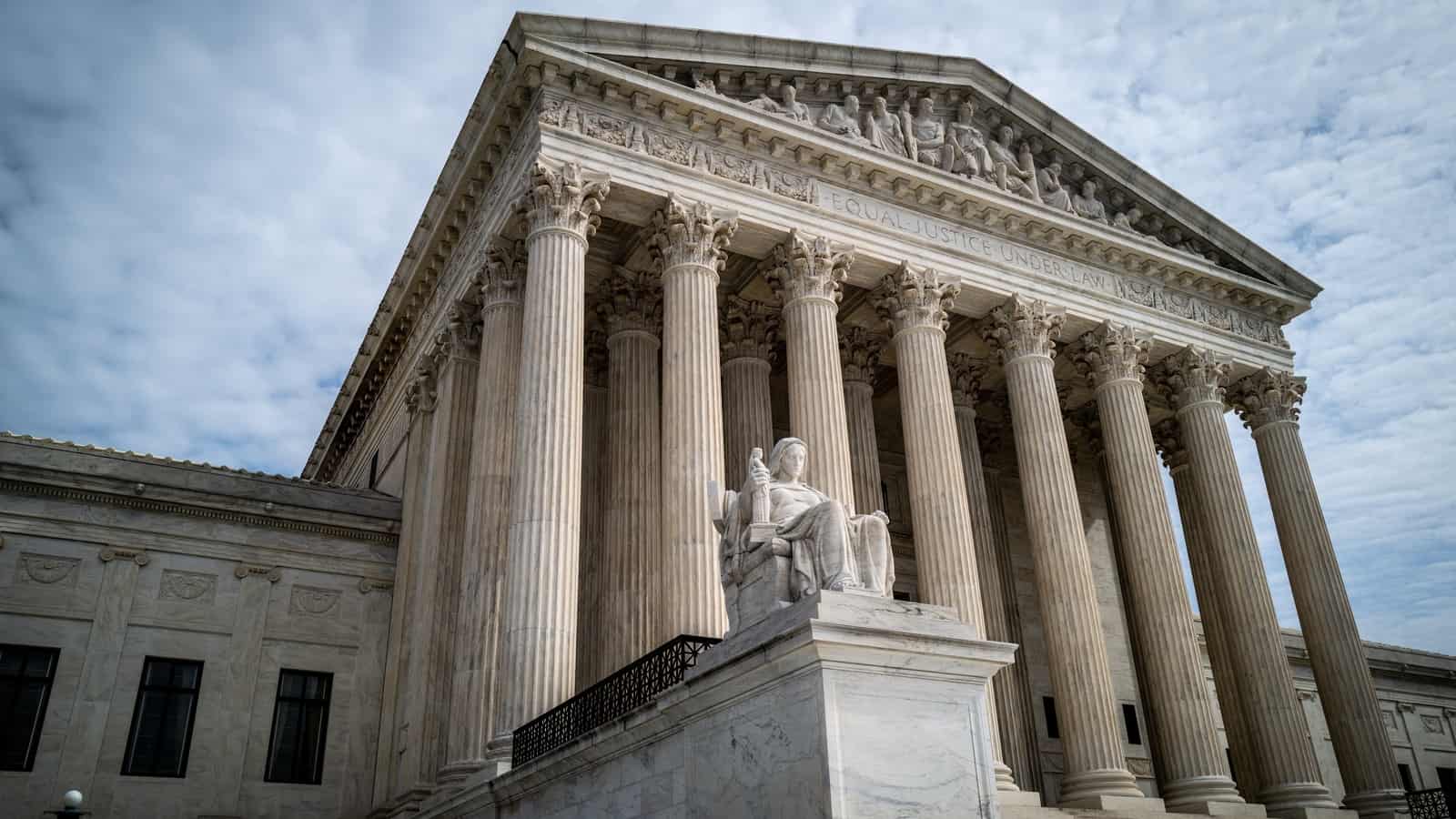The NAM Goes to the Supreme Court

Spring is the season of SCOTUS, when the court releases its most important decisions for the year. This year, the NAM is awaiting decisions on a number of cases in which it participated as an amicus—a “friend of the court”—and has already received one significant victory: a ruling in favor of energy companies on a procedural issue regarding climate lawsuits.
We spoke to two of the NAM’s legal experts—Vice President of Legal and Deputy General Counsel Patrick Hedren and Senior Litigation Counsel Erica Klenicki—to get the overview of this busy season for the NAM’s Manufacturers’ Center for Legal Action.
Energy victory: The court ruled in favor of the energy companies in a suit brought against them by the city of Baltimore. As Hedren puts it, the case hinged on a “wonky procedural issue,” but the crux was this: where should nationwide issues be litigated, particularly if the federal government played some role?
- The energy companies and the NAM argued that climate change is just such a nationwide and even global issue and simply cannot be decided by state courts. The nature of the issue makes access to federal courts paramount.
- SCOTUS’s ruling didn’t address the underlying climate concerns, but it did provide easier access to federal courts for these types of disputes, say Hedren and Klenicki.
Class actions: The NAM is awaiting the Supreme Court’s decisions on several other cases in which it participated, including TransUnion LLC v. Ramirez, which deals with a key issue for large manufacturers and other companies: class-action lawsuits.
- As the NAM’s legal team notes, these cases are often brought by attorneys looking for a payday, even when the vast majority of the “class” in question, though technically affected, was not really injured.
- That’s what happened in this case. The class included people whom TransUnion mistakenly identified as potential matches for individuals on the Treasury Department’s terror watch list, which could have resulted in denials of loans.
- Though the lead plaintiff did allegedly suffer harm due to this error, most of the 8,000-plaintiff class were entirely unaware of the error. The company had fixed its mistake before those plaintiffs were harmed.
To put it simply, the rules for class actions are far from clear, say Hedren and Klenicki. The courts often award damages or settlement money to uninjured people who could not have brought a case on their own. And the only winner in this system is the plaintiffs’ bar. That’s why the NAM is asking SCOTUS to clarify the rules for bringing a class action and ensure that trial courts are applying rigorous standards before certifying a class.
Free speech: The NAM is also awaiting the court’s decision on Americans for Prosperity Foundation v. Becerra, a case concerning whether the government can force an organization to disclose the identities of its donors. While the NAM doesn’t have donors, it does have a keen interest in keeping its member list confidential. If all such lists had to be released, it would “chill free speech,” say Hedren and Klenicki.
Following suit(s): Lastly, the NAM team is asking the court to hear several other cases during its next term, including:
- Miller v. CH Robinson Worldwide, Inc. In this case, the plaintiff was injured by a truck belonging to a small company, yet was allowed to sue the freight broker that hired the trucking company, too—despite a federal law that preempts those kinds of suits. The NAM is asking SCOTUS to consider the case so it can put commonsense limitations on liability.
- City of Oakland, et al. v. Chevron Corp., et al.: This case is very similar to the energy case mentioned above.
The last word: Hedren explains why the NAM’s involvement in our nation’s highest court is so important: “The Supreme Court really values the manufacturing sector’s perspective, in part because bad decisions in a single lower court can have ripple effects across the whole economy. The NAM pays close attention to those cases that might really change—for better or worse—the way the sector operates, or that might open the door for crafty lawyers to abuse the court system. If we’re not out there fighting for better legal policy, we’ll face a legal system increasingly tilted in favor of game-playing and abuse.”
